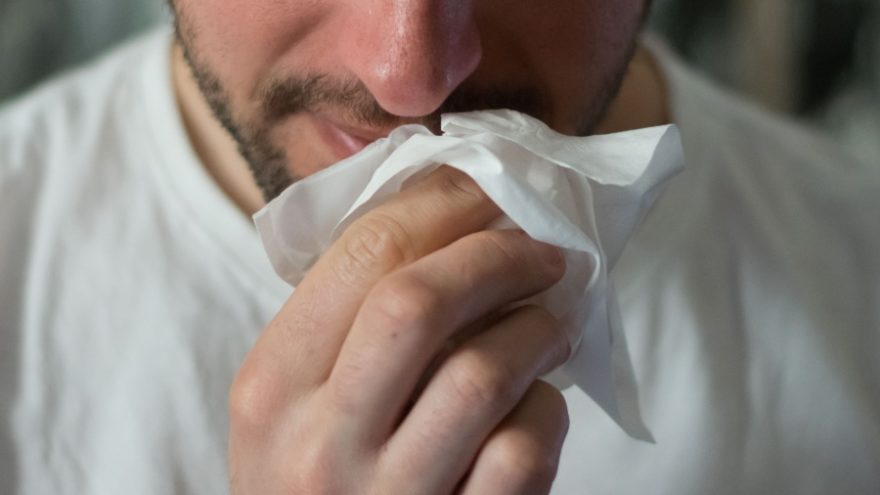Ways to Manage your Child’s Allergies

Allergies are every parent’s nightmare because they don’t understand what is causing their child to wheeze or allergies in general. It’s important to be on top of your child if they have an allergy. Sometimes babies as young as a few months old develop asthma and are put on nebulizers for no apparent reason. Other times your child might have a dangerous food allergy but whatever allergy your child has, make sure you take the advice of your pediatrician so your child can live a normal life. Kids can be allergic to dust, mold, ragweed, mildew, cats, dogs, animal fur, certain chemicals, nuts, dairy, smoke, and many more items. Some children grow up and have to spend time in the house because of summer allergies or from a bad cold that can become pneumonia.
Many symptoms can come from allergies, while most adults are used to these allergies, kids are not. Children are miserable when they are constantly sneezing, wheezing, coughing and itchy. Small children still are developing their immune systems so after a while the triggers your child had while younger will start to change. Whatever the case may be, it’s still very critical that parents understand what sets off their child’s allergies. This way they can work on their home to make their child’s life less miserable by creating an allergy free home. Here are some tips for helping your child with allergies to improve their quality of life.
Triggers
Allergies can be brought on by major changes in the weather but different foods and dust are also problems for kids. Find out what your child is allergic to even if you have to take them to an allergist for an allergy scratch test. There are some very common triggers of allergies in kids. This can be dust, chemicals, weeds, grass, food mold, mildew, cockroaches and droppings, smoking and weather changes. Cockroaches can really trigger off an allergic reaction for asthmatics and so can Asian beetles that look like ladybugs, Cockroaches carry their mate so they breed very quickly and are more common down south. However, there are also a lot of cockroaches in larger cities. Bed bugs are the latest epidemic that has overtaken many large cities and causes itching and scratching and cause a fortune to get rid of.
If your child is allergic to pollen, and the pollen is high, don’t let them play outdoors for long or you might have a wheezy child by bedtime. You can download a weather app like Accuweather that tells you when the pollen, ragweed and grass allergies are high so you can limit your child’s playtime outdoors. You might want to keep the air conditioner on and buy an air purifier.
Limit Pets
Pet fur is a major problem for creating different kinds of allergies. Pet fur also picks up everything outside that your child may be allergic to. Try to keep your pets indoors as much as possible during allergy season or don’t have any furry pets if your child is allergic to them. Asthma is a very serious disease and can cause death. The fur from certain animals and the things we can’t see that stick to the fur can create an upper respiratory disease. When you don’t catch it in time your child may become seriously ill. If your child is extremely allergic to fur, buy fish. They make good pets and so do reptiles.
 Dust Mites
Dust Mites
People get mites from house dust, humidity, and warm air. Mites also have droppings as well and whether you realize it or not they drop all over our homes. If you have a child allergic to dust mites, try and skip having carpeting, if you do make sure you clean your carpeting regularly and vacuum regularly. You won’t believe how much dust you pull out of your rug if you vacuum once a week. You probably will have to vacuum daily if your child is allergic to mites. Keep your bedding clean and wash in warm water, keep anything furry away from your child including fleece. Fleece collects dust and then the mites take over and take your child’s breath away. Try to keep their toys in a toy room if possible.
Mold
Try to limit mold by getting a dehumidifier and wiping down all wet surfaces in your bathroom. Purchase some Lysol wipes and use them daily in your bathrooms to remove mildew. Mildew build up from humidity. Damp basements have mold and mildew so use a good dehumidifier to remove the excess water so you can’t smell the mold and mildew when the weather is warm. If you have plants or plug-in air fresheners, you might want to dispose of those too.
No Smoking
It’s a proven fact that second-hand smoke can cause permanent allergies and can cause asthma in children for life. Don’t smoke in your home or anywhere your child will be able to smell smoke. This also includes scented candles, burning wood for stoves or fireplaces and incense.
 Inform the School
Inform the School
Make sure you talk to your child’s teacher and let the school know that your child has allergy problems. Talk to your child’s teacher about how you keep your child’s allergies under control. If your child is on any rescue medication, inform the school if they have an inhaler and need to use it. If your child seems to be struggling and wheezing, have the school get ahold of you so you can call the doctor and take your child in. Don’t wait until it’s too late because sometimes breathing problems come on rapidly and a child can start turning blue so make sure you inform the school to be on top of your child’s health. You can always come in on orientation and discuss your child’s needs with the teacher and principal so everyone will be on board if an emergency arises. The most important thing is to learn what triggers your child into having an allergic reaction. This way you can tell your child’s teacher and other caregivers’ what to look out for so they can prevent a serious emergency.







